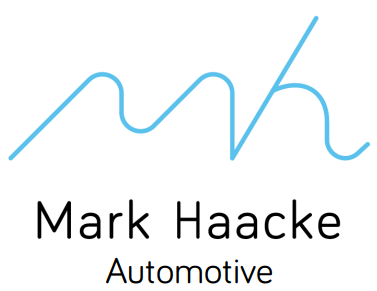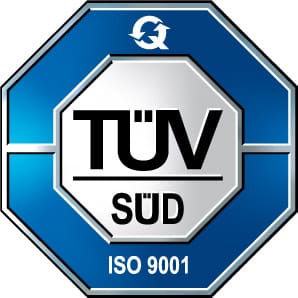Description
In the modern automotive industry, companies face a variety of challenges. In addition to the requirements of ISO 9001 and IATF 16949, they must also take into account the so-called “Customer Specific Requirements” (CSR). These CSRs extend and specify industry standards and are often contractually required by OEMs (Original Equipment Manufacturers) or other customers in the supply chain. For companies, this means that established business processes have to be adapted to several (sometimes very different) requirements – a task that requires a high degree of flexibility and detailed knowledge.
What are CSR (“Customer Specific Requirements”)?
- Definition & role: CSRs are binding regulations that a customer introduces in addition to the general requirements (e.g. ISO 9001 or IATF 16949). They apply in addition to the legal, regulatory, normative and industry-specific requirements.
- Purpose: Customer-specific requirements are intended to ensure that suppliers meet certain quality and process standards in order to guarantee consistently high product and process quality.
- Difference to CR (“Customer Requirements”): While CR can generally include all of a customer’s requirements (e.g. specifications, specifications, drawings), CSR usually refer to special requirements that go beyond the general standard and are often contractually anchored.
Why are CSRs so important?
- Contractual commitment: In many cases, the fulfillment of CSR is stipulated in the supplier contract. Non-compliance can have legal or financial consequences.
- Competitive advantage: Companies that demonstrably fulfill all customer-specific requirements can position themselves as preferred suppliers and build long-term customer relationships.
- Quality improvement: CSR helps to further raise quality and safety standards and continuously improve processes.
Contents & focus of the training
- Basics & definitions
- ISO 9001 and IATF 16949 as a basis
- CSR vs. CR (Customer Requirements)
- Context of legal, regulatory and industry-specific requirements
- Examples of CSR compared to international standards
- Standards such as ISO 9001, IATF 16949 and their extensions
- Typical additional requirements from OEMs (e.g. documentation, test methods, material and process specifications)
- CSR analysis process
- Identification and assignment of the CSR to the corresponding ISO chapters
- Evaluation of the relevance and derivation of measures for your own quality management system
- Implementation and realization
- Development of a structured approach to integrate CSR into existing processes
- Project and change management (strategic planning; project management & change management)
- Product & process development, laboratory, testing, repair/rework
- Interface management (risk management, HSE, legal & audit management, escalation & emergency planning, supplier management, purchasing and procurement)
- Concretization through examples
- Product and process approval: PPAP (AIAG) vs. PPF (VDA)
- Risk management: FMEA (AIAG/VDA), dealing with cybersecurity & software requirements
- Documentation requirements: Continuous requalification, traceability requirements, escalation processes
- Warranty & after-sales: handling warranty cases, complaints management, dealing with defective parts
- Supplier management: supplier evaluation, supply contract and framework agreement, CSR requirements for Tier 1 and Tier 2 suppliers
- Organizational challenges
- Implementation of an integrated management system (e.g. QMS, PI/CoP, NTF)
- Dealing with multiple CSR versions from different customers at the same time
- Definition of clear responsibilities (e.g. QMB, PSCR, CoP representative)
- Documentation and obligations to provide evidence
- Practical tools & best practices
- Checklists for CSR implementation
- Creation of an internal “CSR master plan”
- Continuous training of employees on customer requirements
- Internal and external audit management
Learning objectives of the training
- Sound understanding of the role and importance of CSR in the automotive industry
- Ability to distinguish CSR from general customer requirements and assign them correctly
- Knowledge of a structured analysis and implementation process for CSR
- Confidence in dealing with contractual, legal and technical aspects of CSR
- Application of practice-oriented methods and tools to effectively design the CSR implementation process
Target group
- Specialists and managers from quality management, supply chain management, purchasing and sales
- Project managers and process owners in the automotive supply industry
- Anyone who comes into contact with customer-specific requirements in their day-to-day business or has to implement them
Benefits for your company
- Risk minimization: avoidance of contractual penalties or complaint costs by carefully fulfilling all customer-specific requirements
- Process optimization: Creation of efficient and standardized processes that cover different CSR variants
- Strengthening the customer relationship: fulfilling CSR leads to greater trust and a more stable partnership with OEMs and other clients
- Sustainable competitiveness: Robust CSR management is a key factor for long-term success in the global automotive market
Procedure and organization
- Duration: 2 days (depending on individual requirements and level of depth)
- Methodology: Combination of specialist presentations, case studies, group work and exchange of experience
- Documents: Detailed documentation, templates and practical checklists for implementation in your own company
Be optimally equipped for the increasing demands of the automotive industry!
With our comprehensive CSR training course, you will learn how to systematically analyze customer-specific requirements and efficiently integrate them into your existing quality management system. Benefit from an extensive knowledge base, practical tools and an exchange with industry experts. We look forward to welcoming you to our training course!

Dipl.-Ing. (FH) Thomas Fricke
Thomas Fricke ist Gründer von Fricke Business Solutions und bringt über 30 Jahre Branchenerfahrung in Automotive sowie Maschinen- und Anlagenbau mit. Als Maschinenbauingenieur und Betriebswirt verfügt er über ein profundes technisches und kaufmännisches Wissen. In früheren Rollen war er unter anderem als Global QM-Manager für einen renommierten Konzern tätig und arbeitet heute erfolgreich als Interims Manager, Senior QM-Manager, Lieferantenmanager, Leadauditor, Ausbilder, Trainer und Prüfer.
Fokus & Spezialisierungen
- Audits & Zertifizierungen: Durchführung interner und externer Audits als Leadauditor (VDA 6.x (3/5/8), AIAG-CQI, IATF 16949, ISO 9001, MMOG, CoP & Product Safety, ISO 27001)
- Qualitäts- & Lieferantenmanagement: Einführung von Qualitäts-, Lieferanten- und Energiemanagementsystemen, Leitung von Lieferantenentwicklungsprojekten (national & international), Verhandlung von Qualitäts- und Lieferverträgen
- Prozess- & Kostenoptimierung: Effiziente Gestaltung der gesamten Wertschöpfungskette, Aufbau und Verbesserung von Kennzahlensystemen, Anwendung gängiger Q-Methoden (KVP/CI, 5S, FMEA, APQP/RGA, PPAP/PPF, 8D, CSR etc.)
- Technische Kompetenz: Optimierung von Herstellungs- und Bearbeitungsprozessen in Zerspanung, Guss-, Schmiede-, Umform- & Fügetechnik, Spritzgusstechnologie, Keramik-, Kunststoff-, Sinter-, Elektro- & Friction-Technologie
- Interimsmanagement: Übernahme leitender Funktionen in Qualität, Produktion und Einkauf (QMB, PSCR, CoP-Representative, Technische Leitung, Einkauf)
Training & Coaching
Thomas Fricke ist zertifizierter Leadauditor und Trainer (VDA-QMC/AIAG) und führt Schulungen in den Bereichen Automotive Core Tools (APQP, FMEA, SPC, MSA, PPAP, RGA/MLA), ISO 9001, IATF 16949, VDA 6.x (3/5/8), MMOG und weiteren Themen der Qualitäts- und Lieferantenentwicklung durch. Zudem moderiert er Workshops wie KVP/APQP/FMEA/8D und vermittelt praxisnahe Lösungen für Prozess- und Qualitätsoptimierung.
Sprachen
- Deutsch
- Englisch (verhandlungssicher)
- Französisch (Basis)
Durch seine umfangreiche Erfahrung, seine Vielseitigkeit in technischen und kaufmännischen Themen sowie seine Kompetenz in Audits und Prozessoptimierung ist Thomas Fricke ein geschätzter Ansprechpartner für Unternehmen, die ihre Qualitätssicherung und Lieferprozesse nachhaltig weiterentwickeln möchten.






Reviews
There are no reviews yet.